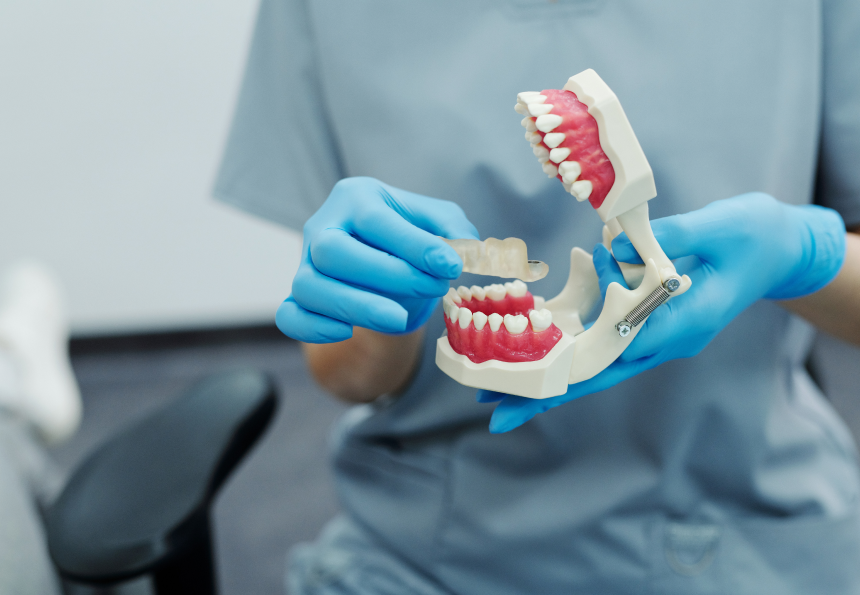Discover Common Dental Issues That Dentists Can Treat Effectively
Oral wellness is a crucial element of general health, yet common issues such as tooth cavities, periodontal condition, tooth degeneration, tooth sensitivity, and misaligned teeth frequently go without treatment. Innovations in oral treatment have actually made it feasible for dentists to deal with these issues properly via various therapies.
Dental Caries
Cavities, also referred to as tooth decays, are just one of one of the most widespread oral concerns influencing people of any ages. They happen when the enamel, the difficult outer surface of the teeth, is eroded by acids produced by microorganisms in the mouth. These microorganisms grow on sugars and starches from food and beverages, producing a sticky film called plaque that follows the teeth. Over time, the acids in plaque can create little openings or openings in the enamel, leading to cavities.
Early-stage dental caries commonly go unnoticed due to the lack of signs. However, as the degeneration advances, people might experience tooth sensitivity, discomfort while eating or consuming alcohol, noticeable holes, and staining. Normal dental examinations are important for very early detection and administration of cavities. Dental practitioners employ numerous treatments based on the extent of the decay, consisting of fluoride treatments, fillings, crowns, and in extreme cases, root canals.

Gum Tissue Condition
Gum disease, likewise understood as gum condition, is a prevalent problem that affects the tissues surrounding and supporting the teeth. It mainly happens because of the build-up of plaque, a sticky movie of germs that bases on the teeth. Otherwise eliminated with routine brushing and flossing, plaque can solidify right into tartar, which can only be eliminated by a dental professional.
There are two main stages of gum disease: gingivitis and periodontitis. Gingivitis is the initial, milder kind, identified by red, puffy gum tissues that might bleed easily. At this stage, the problem is commonly relatively easy to fix with correct dental hygiene and professional oral cleansings. If left without treatment, gingivitis can advance to periodontitis, a more severe kind that can cause loss of the bone that supports the teeth.
Periodontitis includes deeper infection and swelling of the periodontals, causing the gum tissues to retreat from the teeth and create pockets that can end up being infected. Therapy for periodontitis typically involves scaling and origin planing, a deep-cleaning procedure to get rid of tartar and bacteria from under the periodontals. In advanced cases, medical treatments may be necessary to bring back gum and bone health and wellness. Regular dental exams are vital for very early detection and reliable management of periodontal disease.
Dental Cavity
Dental caries, a prevalent dental issue, manifests when the tough surface of the tooth, referred to as enamel, is damaged by acids generated by microorganisms in plaque. This process starts when sweet and starchy foods are consumed, offering a reproduction ground for microorganisms. These bacteria metabolize the sugars to produce acids, which consequently wear down the enamel, bring about cavities.
Initially, dental cavity may be asymptomatic, however as it advances, it can cause noticeable openings or pits in the teeth, tooth pain, and level of sensitivity to warm, cool, or pleasant materials. If left untreated, the decay can penetrate much deeper layers of the tooth, getting to the dentin and at some point the pulp, creating extreme discomfort and possibly causing abscesses or infections.

Tooth Sensitivity

The underlying sources of tooth level of sensitivity are differed. Typical elements include enamel disintegration as a result of hostile brushing, acidic food consumption, or dental conditions such as periodontal economic downturn and dental caries. Revealed dentin, the layer beneath the enamel, permits outside stimulations to get to the nerve closings, resulting in discomfort.
Dental practitioners can properly treat tooth sensitivity via different interventions. Desensitizing tooth paste and fluoride gels are commonly prescribed to strengthen enamel and minimize discomfort. In instances of serious sensitivity, oral professionals might apply bonding representatives or suggest therapies such as fluoride varnishes and sealants to protect subjected dentin. Resolving the root cause, such as dealing with gum illness or modifying brushing methods, is essential for long-lasting alleviation.
Misaligned Teeth
Handling misaligned teeth is one more usual concern in dental health, substantially influencing both aesthetic appeals and performance. Misaligned teeth, usually described as malocclusion, can arise from numerous factors, including genetics, thumb-sucking during childhood, or prolonged use a pacifier. This problem not just influences the look of one's smile yet can additionally bring about troubles in eating, talking, and preserving oral hygiene, enhancing the risk of tooth decay and gum disease.
Dentists use numerous reliable therapies to deal with misaligned teeth, tailored to the severity and specific demands of the individual. Standard metal braces continue to be a commonly used option, specifically for intricate situations, as they gradually change teeth right into the appropriate position with time. For those seeking a less obvious service, clear aligners such as Invisalign offer an even more aesthetic alternative, supplying the very same corrective advantages without the exposure of steel braces. Additionally, orthodontic devices like retainers are vital in maintaining the outcomes post-treatment, preventing teeth from changing back to their original placements.
Very early intervention is important for optimum results, making routine oral exams important for dealing with and determining imbalance concerns quickly. With tailored therapy plans, dental professionals can successfully restore both the capability and look of a patient's smile.
Conclusion
In summary, dealing with typical oral troubles such as dental caries, gum tissue condition, dental cavity, tooth level of sensitivity, and misaligned teeth is vital for keeping dental wellness and capability. Dentists are equipped to diagnose and treat these issues effectively through numerous treatments, consisting of dental fillings, cleanings, orthodontics, and precautionary care. Appropriate and prompt therapy can alleviate the dangers connected with these dental problems, therefore boosting general oral health and quality of life.
Oral health and wellness is a vital element of overall health, yet typical issues such as cavities, gum tissue illness, tooth decay, tooth level of sensitivity, and misaligned teeth commonly go without treatment.Tooth decay, a widespread oral issue, shows visit this site up when the difficult surface of the tooth, recognized as enamel, is damaged by acids generated by germs in plaque. Preventive actions such as routine oral examinations, excellent oral health methods, and a well balanced diet plan are essential in minimizing the danger of tooth degeneration.
Common variables include enamel disintegration due to aggressive cleaning, acidic food intake, or dental problems such as gum economic crisis and tooth decay.In recap, addressing typical oral problems such as tooth cavities, gum illness, tooth degeneration, tooth sensitivity, and misaligned teeth is important for keeping oral health and wellness and capability.